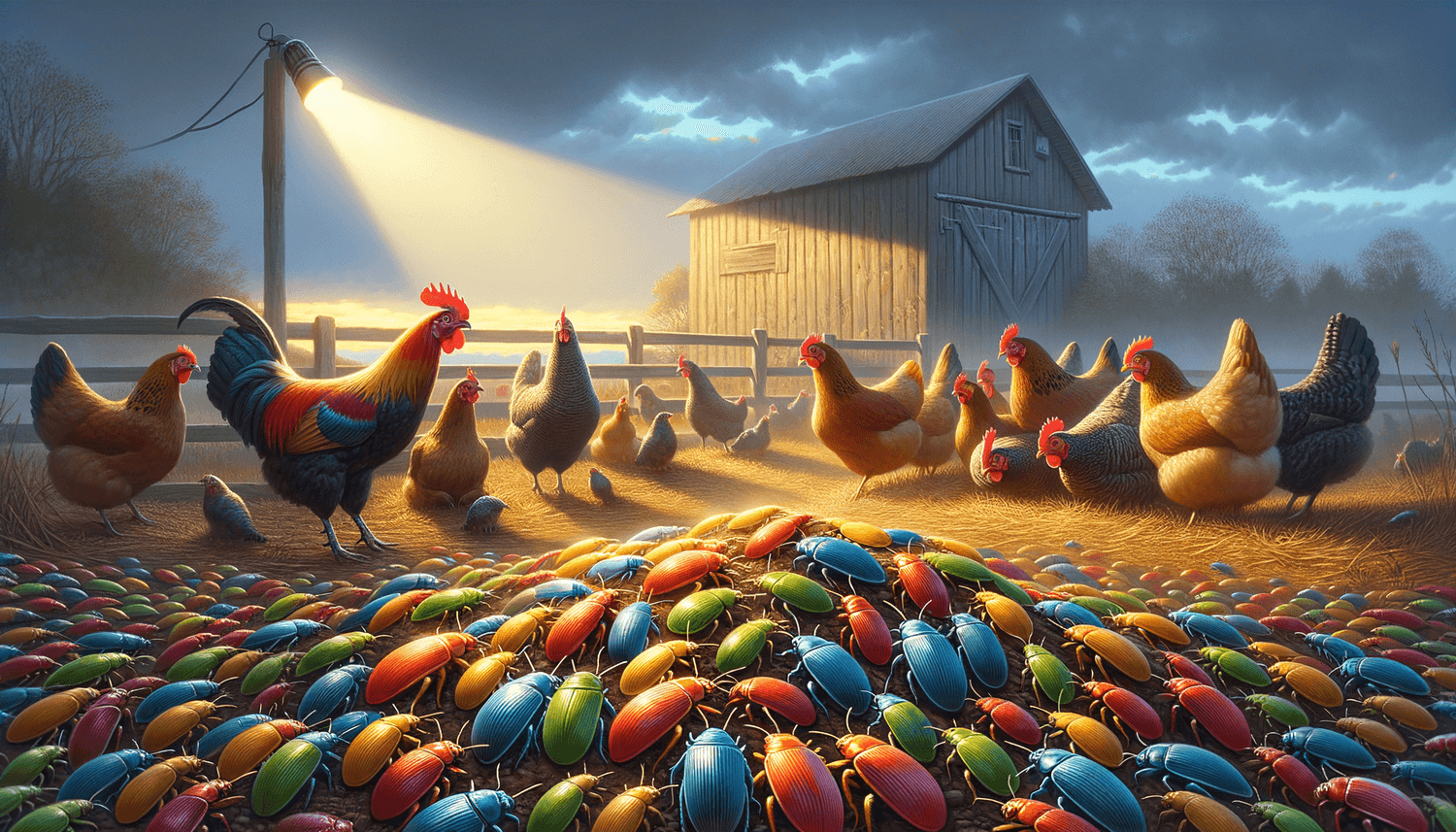If you’re a chicken enthusiast, you know that our feathery friends can be quite the little food connoisseurs, gobbling up everything from leftover kitchen scraps to tiny garden intruders. One question that might bug you – pun intended – is whether chickens can eat stink bugs, those smelly little critters that might crawl into your coop. In this eggs-traordinary blog post, we’re going to crack open the topic of stink bugs as chicken snacks, discussing the importance of a balanced diet, nutritional value, benefits and/or risks, and how to safely prepare these insect treats for your backyard brood. Buckle up, because we’re about to embark on a fun and peck-uliar adventure!
Can chickens eat stink bugs?
Yes, chickens can eat stink bugs, and it is generally safe for them to do so. Stink bugs can provide a source of protein for chickens, making them a nutritious, albeit smelly, snack. In moderation, stink bugs shouldn’t cause any harm to your feathered friends, but it’s always wise to monitor their intake and watch for any adverse reactions, just to be on the safe side.
A balanced diet for chickens
Just like humans, chickens need a balanced diet to thrive and stay healthy. A well-rounded intake of nutrients ensures they maintain good energy levels, produce quality eggs, and lead a happy life. Chicken feed plays a crucial role in providing essential nutrients, and the diet of your backyard friends should primarily consist of a high-quality chicken feed.
Chicken feed should make up about 80-90% of a chicken’s diet, offering an appropriate balance of proteins, vitamins, and minerals. The remaining 10-20% of their diet can consist of treats, such as fruits and vegetables. By providing a mix of chicken feed and other nutritious snacks, you’ll keep your flock happy, while also ensuring they consume the right balance of nutrients for optimal well-being.
Nutritional value of stink bugs for chickens.
Feeding stink bugs to chickens does provide some nutritional value, particularly in the form of protein. Insect consumption in general can be an excellent natural source of protein for chickens, with stink bugs being no exception. Protein is essential for muscle development, feather growth, and overall good health in chickens, which makes stink bugs an attractive snack option.
While stink bugs contribute protein content to your chicken’s diet, they do not offer a wide range of vitamins or minerals like certain fruits and vegetables. However, their relatively high protein content can help supplement the total amount of protein the chickens get from their overall diet, supporting their bodily functions and egg production.
Hydration is another aspect worth considering. Stink bugs are not a significant source of hydration for chickens, and it is crucial to ensure they always have access to fresh, clean water. Overall, while stink bugs may not be a powerhouse of nutrients, they do contain protein that can benefit your chickens when consumed in moderation alongside their regular diet.
Nutrition table of stink bugs for chickens.
| Information | Description |
|---|---|
| Nutritional Value | Primarily, stink bugs provide protein content. |
| Suggested Serving Size | Occasional and in moderation as part of overall balanced diet. |
| Safe Feeding Practices | Monitor intake to ensure safe consumption and to avoid any adverse reactions. |
| Preparation | No specific preparation needed; stink bugs can be fed as-is. |
| Potential Risks | Generally safe, but always monitor for any signs of intolerance or negative effects. |
| Hydration | Stink bugs do not provide significant hydration; ensure access to fresh water. |
| Digestion | Stink bugs should not cause digestion issues if consumed in moderation. |
| Seasonal Availability | Typically available in warmer months, depending on the location and climate. |
| Other Benefits | Can work as natural pest control by reducing the number of stink bugs in your garden. |
Feeding stink bugs as an eco-friendly solution
Feeding stink bugs to your chickens not only offers nutritional benefits, but it also works as an eco-friendly solution for pest control. By allowing your chickens to forage and feast on these insects, you help reduce the number of stink bugs in your garden or backyard, without the need for harmful pesticides. Moreover, as chickens are naturally attracted to insects, they will relish the opportunity to hunt and peck at these tiny critters.
Alternatives to stink bugs
If stink bugs aren’t readily available or you are concerned about feeding them to your chickens, there are various other insects and treats that serve as excellent protein sources. Mealworms, crickets, and other insects can provide similar benefits, while being equally enticing to your feathered friends. Additionally, mixing in high-protein plant-based options like seeds and legumes can create a diverse and balanced diet, keeping your chickens well-nourished and content.
Keeping an eye on your flock
Remember to always monitor your chickens when introducing any new treat into their diet. This will help you notice if they experience any adverse reactions, such as diarrhea or upset stomach, and make the necessary adjustments to their diet. In most cases, feeding stink bugs following the guidelines provided should be safe for your chickens, and they’ll enjoy the added variety in their meals.
In conclusion, allowing your chickens to snack on stink bugs can add a protein-rich element to their overall balanced diet, while keeping your garden healthy and insect-free. Have fun exploring different sources of protein for your chickens, and ensure they maintain a well-balanced diet for optimal health and happiness.

















